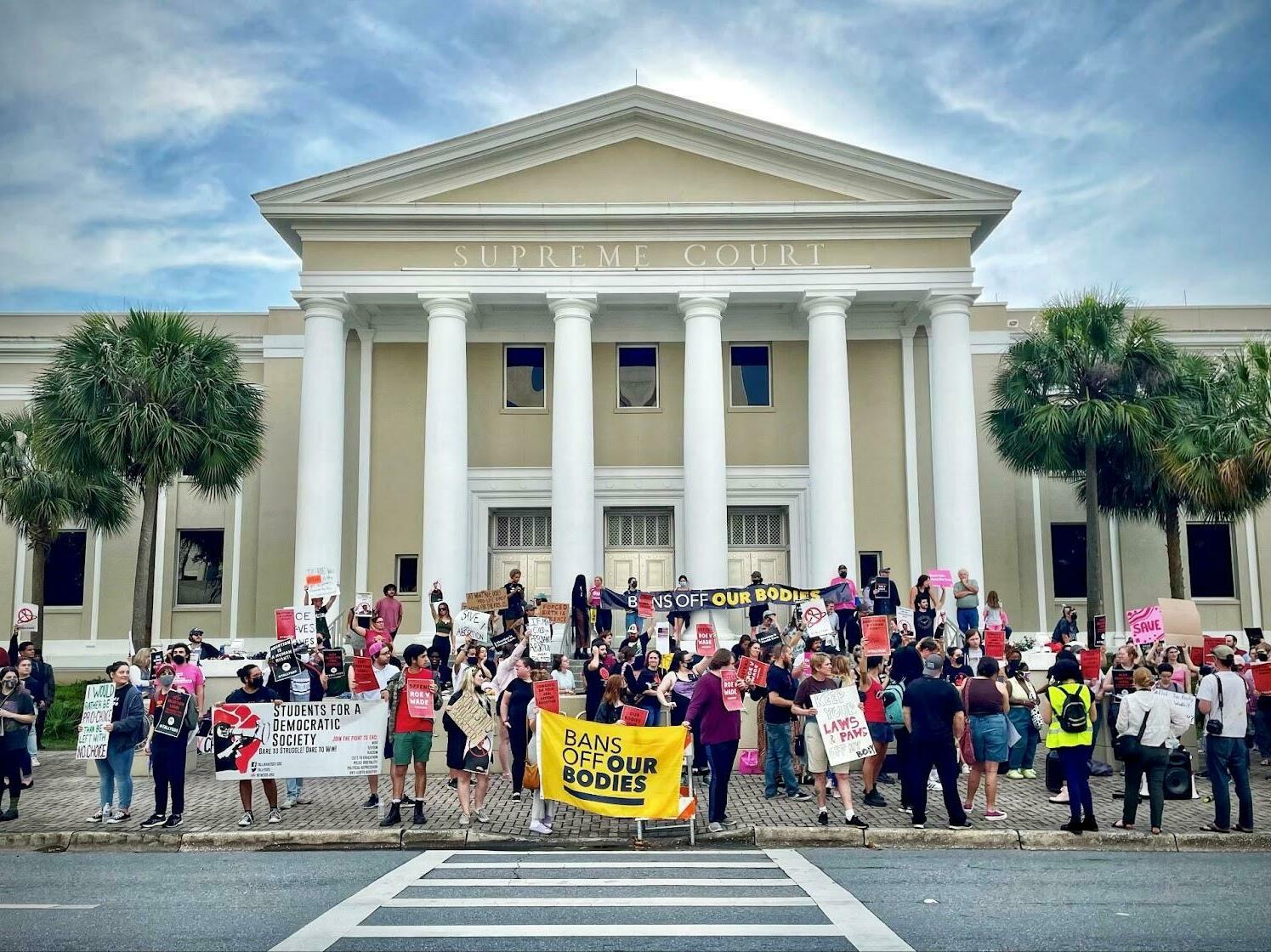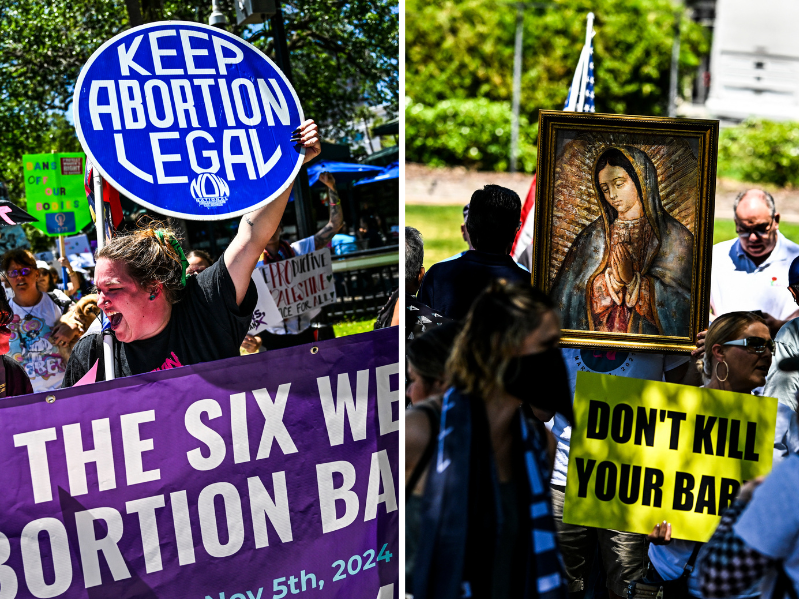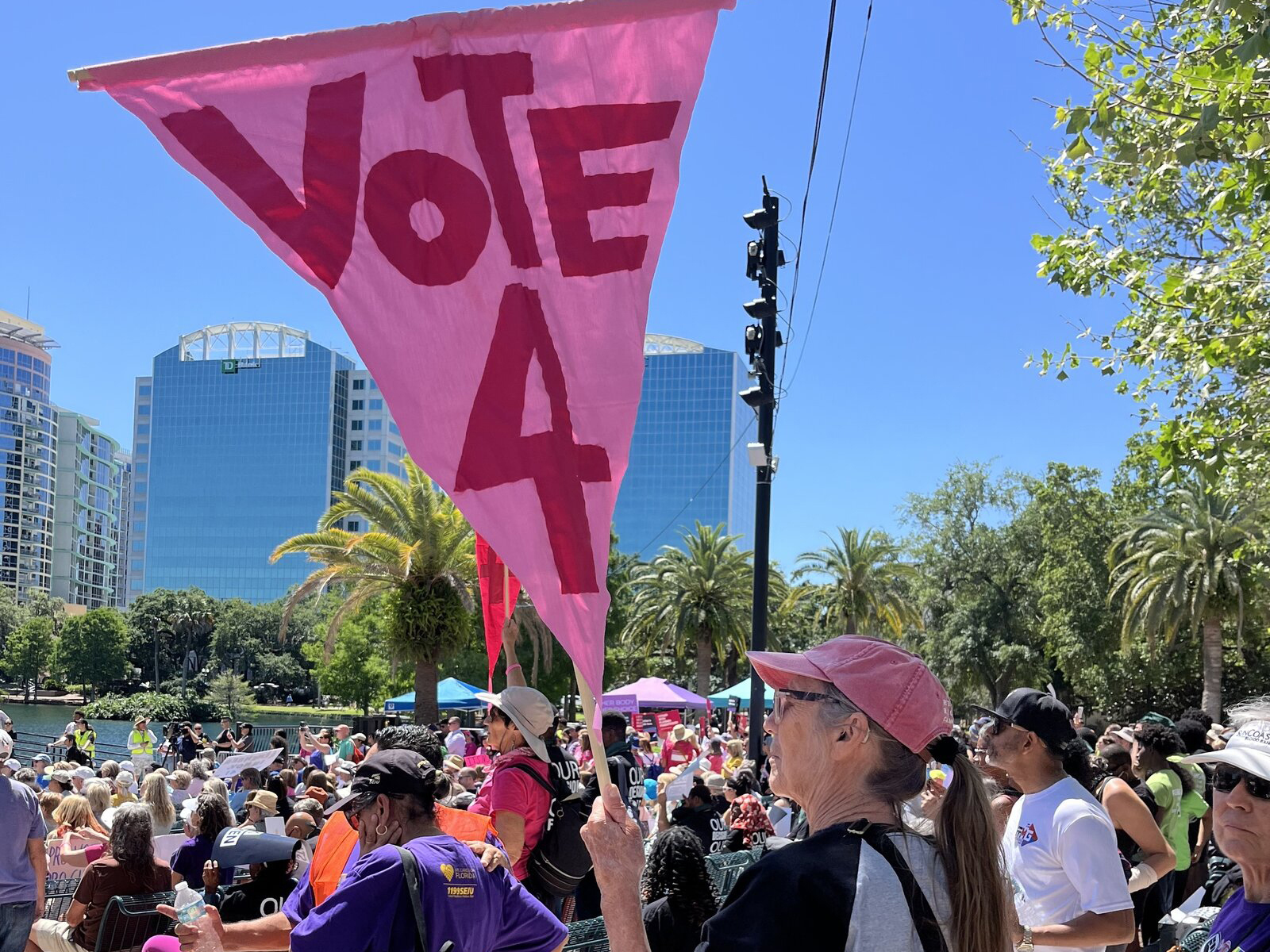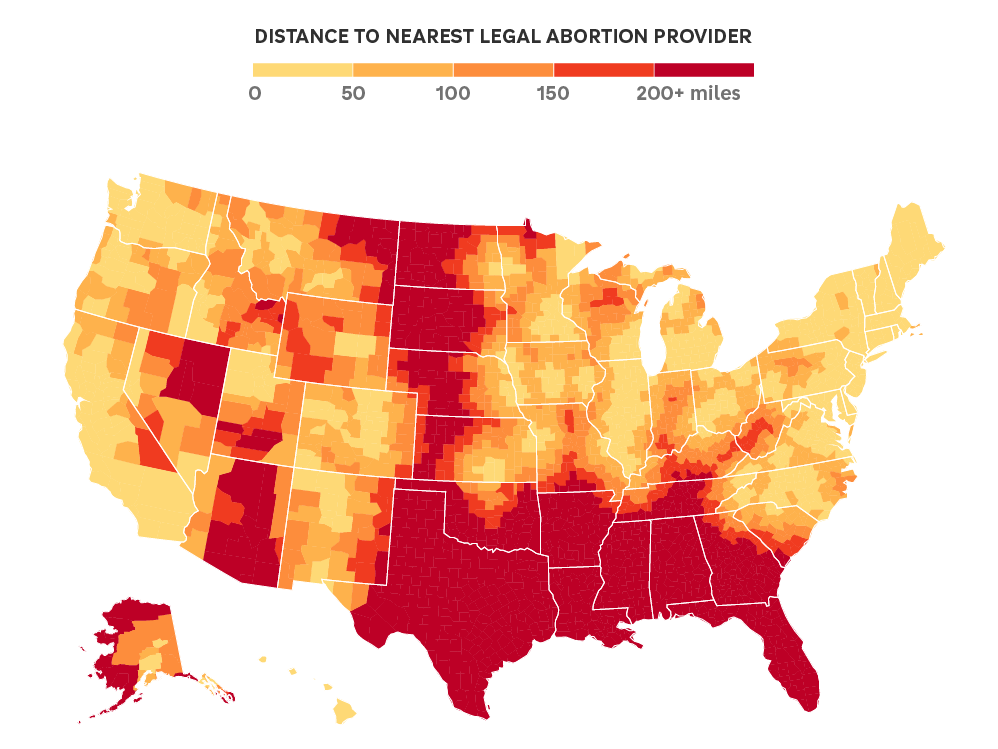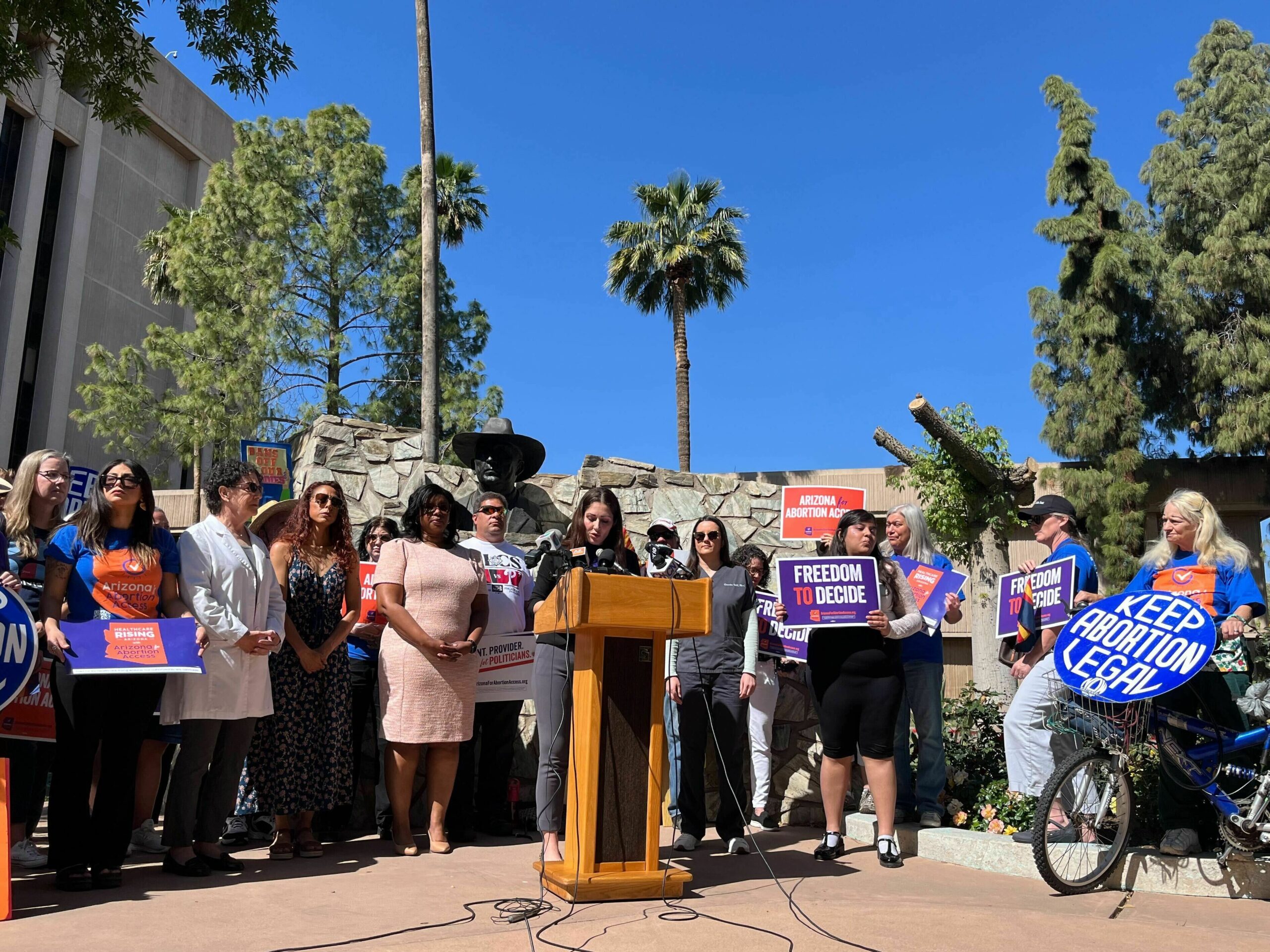TALLAHASSEE – Democrats in the Southeast are setting up abortion as a major election issue after the Florida Supreme Court released two opinions Monday that could change the landscape of abortion access in the region.
At the same time Florida justices triggered a six-week abortion ban by upholding the state’s 15-week restrictions, the court okayed ballot language for a proposed amendment that gives voters in November the choice of whether to explicitly protect abortion access in the state constitution.
“Floridians now face a near-total abortion ban,” says state House Democratic Leader Fentrice Driskall.
Stay informed on the latest news
Sign up for WPR’s email newsletter.
Driskall blames former President Donald Trump for creating the atmosphere that allowed the U.S. Supreme Court to overturn Roe v. Wade in 2022, saying that led to the Florida Supreme Court’s decision that “threatens the health and lives of women in Florida and across the South.” The six-week ban is set to go into effect in May.
Right now, Florida is one of the few states in the Southeast that allows abortion after six weeks. Soon, North Carolina’s 12-week ban will make that state the closest place for most people in the Southeast to access abortion care.
Regional ripple effects
In a press call Tuesday, North Carolina Gov. Roy Cooper, a Democrat, said that sate’s clinics are “stretched thin as it is.”
“Now we expect even more women will be traveling to North Carolina desperate to get the care that they need,” Cooper said in the call with President Joe Biden’s reelection campaign Tuesday. The Biden campaign said abortion could turn Florida into a “battleground state.”
There are a lot of factors impacting the fate of Democrats in Florida, says Daniel Smith, a political science professor at the University of Florida. For example, more Republicans are now registered in Florida than Democrats. But he thinks the abortion issue, combined with a recreational marijuana initiative that will also be on the ballot in November, give Democrats and President Biden a “glimmer of hope in Florida.”
“Ballot measures can mobilize people to the polls who might not normally come out,” Smith says. “But they can also persuade people.”
Ballot measures cause candidates to take a stance on issues important to voters, Smith says, and they give voters a chance to think about which candidate best represents their beliefs.
Republican response
Immediately after the court ruled, Florida Republican House Speaker Paul Renner spoke to journalists and called the amendment “extreme.” He said he plans to fight it, starting by targeting people described as “in the middle.”
“Those that are pro-choice, or consider themselves that, when you dig into this amendment, they would find it to be far, far more extreme than anything else in the country or even around the world.”
The key language in the proposed amendment reads, “No law shall prohibit, penalize, delay, or restrict abortion before viability or when necessary to protect the patient’s health, as determined by the patient’s healthcare provider.” It includes one exception, for parental notification when minors seek an abortion — a stipulation already in the state constitution.
Abortion is on the ballot in Florida, now what?
Lauren Brenzel, campaign director for Floridians Protecting Freedom—the group behind the proposed amendment, says abortion isn’t a Republican or Democrat issue. Brenzel says it’s an issue for people who want to keep decisions about their healthcare between their families and their doctors.
“The fact is, we can never know what someone else is going through,” Brenzel says. “That’s why we must vote ‘yes’ on this amendment, to keep the government out of our exam rooms and make sure Florida families and the doctors who treat them can make the decisions that are right for them.”
The proposed amendment, known as Amendment Four, could reverse the six-week ban. If it passes in November, Brenzel says it will go into effect in January of next year. To pass, it needs approval from at least 60% of the voters who turn out at the polls. More than one million people signed petitions to get the proposed amendment on the ballot, and Brenzel says the next step will require even broader support.
“Florida is a large state,” Brenzel says, “and we need to make sure that we reach out to voters all across this very large state who come from a variety of different backgrounds and a variety of different standpoints on the uniqueness of pregnancy.”
Abortion access advocates are planning to kick off their “Yes on 4” campaign next weekend in Orlando.
9(MDAyMjQ1NTA4MDEyMjU5MTk3OTdlZmMzMQ004))

